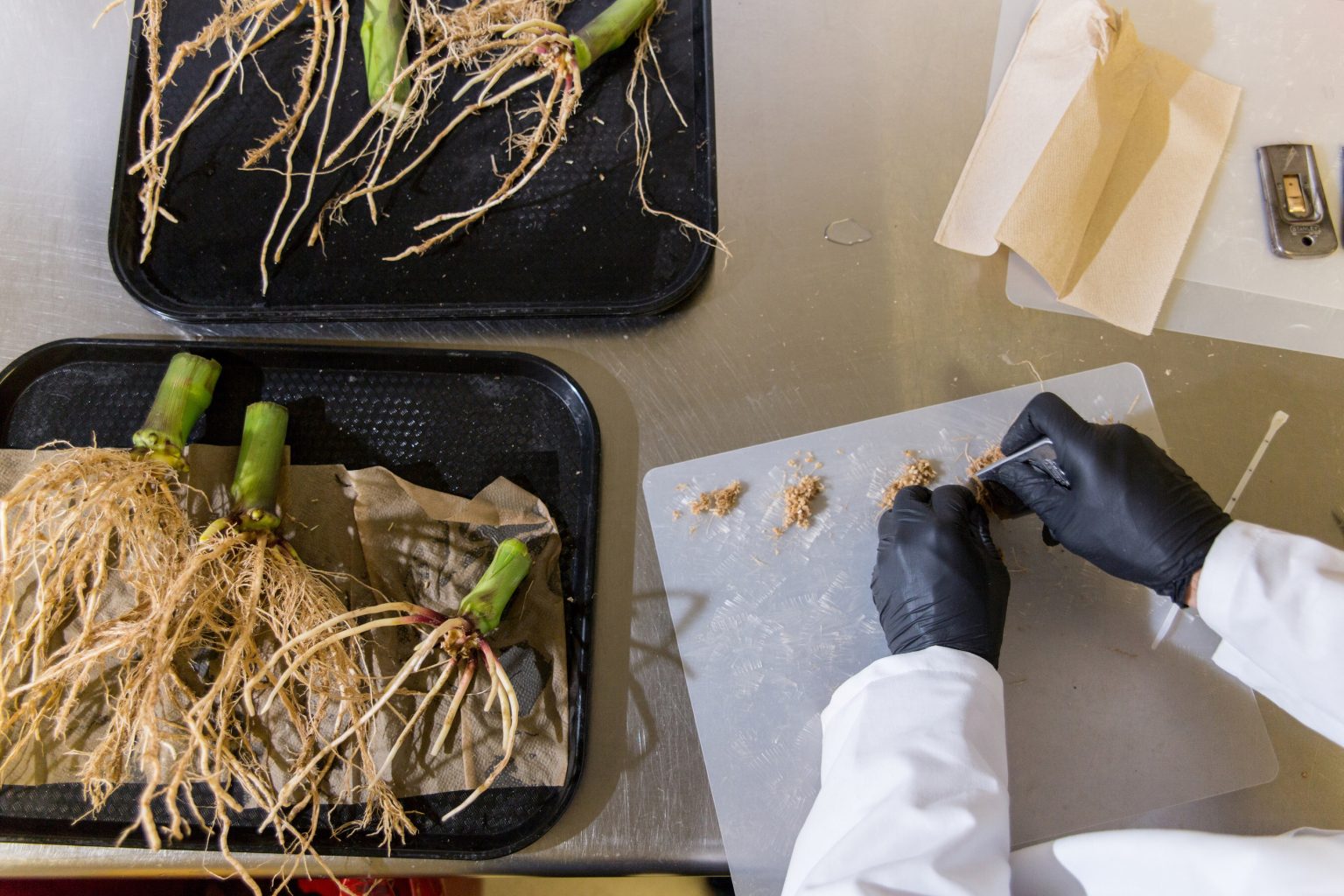A new study published in Scientific Reports reveals a breakthrough in agricultural technology, using gene-edited microbes to provide nitrogen to crops in a way that could revolutionise nitrogen fertilisation. The research, conducted by the University of Wisconsin-Madison, Purdue University, and sustainable agriculture company Pivot Bio, presents the first evidence that gene-editing can enhance the ability of microbes to fix atmospheric nitrogen and transfer it to cereal crops.
Traditionally, synthetic nitrogen fertilisers have been used to provide nitrogen to crops, but these can contribute to environmental issues such as groundwater contamination and greenhouse gas emissions. However, the new research suggests a more sustainable alternative. By using isotopically labelled nitrogen, the researchers traced the nitrogen from the air to the corn plant’s chlorophyll, proving that nitrogen was fixed by the gene-edited microbes and transferred to the plant.
Field trials demonstrated that these modified microbes could fix nitrogen equivalent to up to 40 pounds of synthetic nitrogen fertiliser, producing comparable crop yields without the environmental cost.
The ability to efficiently use nitrogen has long been a challenge for farmers. Dr Bruno Basso, a Michigan State University professor who was not involved in the study, explained, “The core issue is that the soil-plant-atmosphere system is extremely complex.” Unpredictable weather makes it difficult to match nutrient supply with plant demand. Dr Basso’s research aims to help farmers use fertiliser more efficiently, reducing nutrient losses to groundwater and cutting emissions.
The study focuses on diazotrophs, bacteria capable of converting atmospheric nitrogen into a form plants can use. However, native soil bacteria often stop this process when nitrogen levels are high, as it is an energy-intensive activity. Researchers at Pivot Bio used gene-editing to modify these microbes, allowing them to continue nitrogen fixation even in nitrogen-rich environments, such as those found in soils treated with synthetic fertiliser.
“The gene edits ensure that microbes can keep fixing ammonium and deliver it directly to the plant’s root system,” said Dr Karsten Temme, Chief Innovation Officer at Pivot Bio. “We also introduced edits to make sure the bacteria transfer the fixed nitrogen to the plant rather than keeping it for themselves.”
The research is significant because it includes evidence from the lab and field trials, where the microbes delivered nitrogen that improved yields. The product, Pivot Bio’s PROVEN® 40, is already commercially available for corn crops, and has been used on over 13 million acres in the U.S. since its launch.
Farmers who replaced synthetic fertilisers with PROVEN® 40 saw reduced nitrogen rates—by 35 to 40 pounds per acre—without sacrificing crop productivity. Early season nitrogen levels were higher in treated plants, proving the microbes could supply nitrogen effectively.
Dr Temme called the results “a win-win for farmers and the environment,” as the technology is scalable and reduces the need for synthetic fertiliser. If the technology continues to improve, experts believe it could significantly reduce the environmental impact of nitrogen use in agriculture.
Dr Basso agreed, stating, “If this technology delivers on its promise, it could change how nitrogen is managed in agriculture, reducing environmental pollution and the agricultural carbon footprint.”




